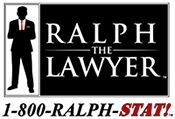Straight Talk About Slip & Falls
 Can I Make a Slip and Fall Claim in Florida?
Can I Make a Slip and Fall Claim in Florida?
- Overview
Yes, but there are certain things that need to be proved before you can make a slip and fall claim in Florida. Florida Statute 768.0755 governs the liability for “transitory foreign substances” in a business establishment. The bottom line is that if you slip and fall in a Florida business establishment, it is important that you engage the services of a lawyer to go through how Florida Statutes, and case law, applies to the facts of each situation. Many people make the mistake in believing that just because you slipped and fell, the business is automatically liable. That’s not the case, and every fact situation should be analyzed in light of Florida law.
Basically, if you slip and fall on a “transitory foreign substance” in a business establishment, you must prove that they had actual or constructive knowledge of the dangerous condition and should have taken action to remedy it, unless it happens with such regularity that it was foreseeable to occur.
- What is a Transitory Foreign Substance?
In order to make a slip and fall claim in Florida you first have to look at what it is that you slipped on. Is it something that is a “transitory foreign substance”, meaning something that’s not supposed to be on the floor? Examples of a transitory foreign substance would be something as simple as water or an broken egg on the floor of a grocery store. It is obvious that water or a broken egg should not be on the floor, therefore it is “foreign”.
- What is Actual or Constructive Knowledge?
Along with proving that it was a transitory foreign substance, the next step in order to make a slip and fall claim in Florida is to prove that the business establishment had “actual or constructive knowledge of the dangerous condition”, and should have taken action to remedy it.
Obviously, if the business establishment actually knew that there was a broken egg on the floor and took no timely action to clean it up, and someone slipped and fell because of the broken egg, then you would have liability. But think about this scenario: suppose you’re in a grocery store and someone is walking in front of you. Also, suppose they accidentally drop an egg on the floor and, within seconds, you slip and fall on the egg. In this scenario, even though you have a transitory foreign substance on the floor, the grocery store may argue that they had no actual or constructive knowledge that the broken egg was on the floor, and as a result, did not have an adequate opportunity to clean it up.
- How to Prove Constructive Knowledge in Florida Slip and Fall Cases?
Proving whether a business establishment actually knew that there was a transitory foreign substance on the floor is relatively straightforward. Through statements, depositions, and discovery in the court process we may determine whether they actually knew of the foreign substance. But what does ”constructive knowledge” mean?
Florida Statute Sec. 768.0755 provides that constructive knowledge may be proven by circumstantial evidence showing that:
- the dangerous condition existed for such a length of time that, in the exercise of ordinary care, the business establishment should of known of the condition; or
- the condition occurred with regularity and was therefore foreseeable.
If the grocery store didn’t know that a broken egg was on the floor, you may be able to prove that it had been there for such a length of time that they should have known about the condition. One of the ways you may be able to prove this is by showing that there were grocery cart track marks through the egg evidencing that it had been there for such a length of time that other people had encountered it, and nothing was done to clean it up.
There are many ways to prove constructive knowledge, and Ralph the Lawyer, along with the assistance of an expert, may develop strategies to establish this element of proof.
Other ways you can prove that a condition existed a sufficient length of time is by looking at security video. Most every business these days have security cameras to prevent shoplifting. By preserving this critical video evidence, you may be able to show when the actual spill happened, and how much time it took between the spill and your fall. This is helpful evidence in showing that the business establishment had adequate time to clean it up.
- Dangerous Condition is Foreseeable Because it Happens Regularly
Sometimes a transitory foreign substance on the floor can be so frequent and regular, that the business establishment may foresee that it is a dangerous condition. An example of this would be water accumulation in front of a self-serve ice machine. If patrons regularly drop ice in front of the machine when grabbing their bags, or set them on the floor such that condensation can accumulate on the floor, this frequent and regular condition may be foreseeable to the business establishment requiring them to monitor the area more closely, or install preventative measures such as slip resistant matting in front of the machine.
There are many instances where the condition happens so frequently that a business establishment has a duty to take extra precautionary measures in making sure that it does not pose a dangerous condition to you. Meet with Ralph the Lawyer to discuss the specific fact situation of your slip and fall case so that he can determine how Florida law applies.
 What To Do After A Slip and Fall in Florida
What To Do After A Slip and Fall in Florida
- Should I Seek Emergency Medical Treatment After My Fall?
If you’re injured as a result of your fall, you should seek medical attention as quickly as possible. Many people make the mistake after their slip and fall to drive themselves home or to a medical facility. In many instances, the fall injury involves a person’s feet, ankles, legs, knees and hips. Trying to drive yourself from the scene of the fall can be dangerous to you and other motorists if you have an injury to any of these areas as it may interfere with your safe operation of a vehicle.
If you’re injured as a result of the fall, it’s best to either call for an ambulance, some other emergency transportation, or call a family member so that they can transport you to a medical facility for evaluation.
Also, I’ve seen in my practice instances where insurance adjusters alleged that my clients weren’t injured because they were able to walk away from the premises without a limp and drove home without a problem.
- Do I Have to Give a Recorded Statement After a Florida Slip and Fall?
You don’t have to give a recorded statement in a slip and fall claim in Florida. If the insurance adjuster tells you that it’s the law and you have to, they are wrong or worse yet, flat out lying to you. If a claims adjuster tries to get a recorded statement from you, I would contact a lawyer as quickly as possible. Don’t forget, claims adjusters are looking out for their own company’s best interest, not yours. You need somebody on your side to fight for your interests. That’s where a lawyer comes into play.
After the fall, the establishment may want to fill out an Incident Report. I have had cases where an insurance company denied that the fall even occurred because there was no incident report given after the fall, and the person just left without telling anyone. It’s important to let the business establishment know that a fall occurred, giving them an opportunity to remedy the situation, and memorializing it in an Incident Report.
The incident report may contain a description of the substance, witness statements and possible photographs of the scene. They will also ask you certain questions like, whether you saw the foreign substance on the floor before you stepped in it, what were you doing right before the fall, and other questions that try to shift the fault of the fall on to you. Be very careful of these tactics!
In certain circumstances, you or your lawyer may be able to get a copy of the incident report, but not always. In Florida, the incident report may be considered to be work product privileged, and prepared in anticipation of litigation, protecting it from disclosure. However, if you have a lawyer, you may be able to get portions of this privileged document under certain conditions. It is important that your lawyer press for this additional evidence.
If you are injured and they ask you whether you are hurt, make sure that you tell them every part of your body that you believe was injured as a result of the fall. Obviously, you may feel the effects of the fall a day or two later after you go home, as the pain may amplify.
 Gathering and Preserving Evidence for A Florida Slip and Fall Claim
Gathering and Preserving Evidence for A Florida Slip and Fall Claim
- Gathering Information at the Scene of the Fall
Florida Statute Sec. 768.0755 is very specific when it comes to proving liability against a business establishment in slip and fall claims. Just because you’re injured on someone else’s business premises does not automatically mean that you have a claim. It is critical that you gather important evidence at the scene immediately after the fall. While this may be difficult because you may be injured and in pain, it’s the most critical time of gathering evidence in a slip and fall claim in Florida. If you can’t get this information, and you’re with a family member or friend, have them get the information. Once the spill or other dangerous condition that caused you to fall is cleaned up by the business establishment, it’s gone forever and your ability to prove your case is jeopardized.
What Information Should I Gather at the Fall Scene?
- You should take photos of the substance you slipped on, including any track marks or debris surrounding the substance on the floor.
- Get witness statements of those that saw you fall. While you might be embarrassed to ask, and think that the slip was your fault, having independent witnesses who saw you fall is very important evidence in your case. Get their name, telephone number, and email, if possible.
- Save your clothes and do not wash them! Many times we are able to determine what you slipped on by doing a chemical analysis of your clothing.
- Save your shoes and do not wear them again. The other side will ask for this evidence and try to blame your fall on the types of shoes you’re wearing. Also from a engineering analysis, we can determine the coefficient of friction between the bottom of your shoe and the floor given the substance that you slipped on.
- Take Photos of the Fall Scene and Surrounding Area
Just about everyone has a cell phone these days with a camera on it. If you are able, take pictures of the substance that you slipped in. Once it is cleaned up, it is gone forever it will be your word against theirs.
Make sure that you take pictures of the surrounding areas around the fall. If there are dry track marks or other stains in the surrounding the area, this may establish that the substance was on the floor long enough for the establishment to have cleaned it up.
Also, take pictures of the aisles in both directions, noting the lack of any wet floor signs or other warning signs. If you can, also take pictures of the business establishment cleaning up the spill, and placing wet floor signs during the cleanup process.
- Can Photos Help me in Fall Claim?
In my opinion, photos are the number one piece of evidence that your lawyer can have in a Florida slip and fall case. Remember, just because you fell in someone else’s establishment doesn’t automatically mean that they are liable for it. You have to prove certain elements under Florida Statute 768.0755 in order to prove liability.
Also, most cell phone software provides data in the photograph showing the time and location of where the photograph was taken. These actually become part of the electronic photograph file. When you send your photographs to your lawyer, make sure that you send them the electronic file by email so that all of the electronic data evidence goes with it.
- Was There Video on the Premises Where You Fell?
It’s amazing how often business establishments lose videotape evidence when they are requested to preserve it to show a slip and fall. Ironically, the video evidence always shows up when in it’s in their favor. Funny how that works!
I always advise my clients to tell the management person creating the incident report to write in the report, “I am requesting that all video camera surveillance be preserved”. Arguably, they have a duty to protect this evidence anyway, but it’s always better to have requests in the file by you and by your lawyer demanding that they protect that evidence. Getting a lawyer as quickly as possible is important because the lawyer can send a letter to the business instructing them to preserve the video. If too much time goes by, the video may be automatically erased. In certain circumstances, the failure to protect this evidence can result in certain presumptions and negative inferences against the business establishment later on in your court case.
- Are My Shoes Evidence in a Florida Slip and Fall Claim?
Save your shoes and don’t wear them again after the fall. It’s better to just give the shoes to your lawyer so that they can save them in an evidence locker. The other side will almost always ask to inspect your shoes, and try to blame your fall on either inappropriate shoes for the condition, or shoes that may be broken or ill-fitting.
Also, don’t wear them again after the fall. If there’s a question as to what it is you slipped on, a chemical analysis can be performed on the substance on the bottom of your shoe that may shed some light on what the substance was. Also, additional wear on the shoes changes the condition they were in at the time of the fall.
I once had a case where a woman was buttering her popcorn at a self-serve butter machine in a movie theater. After she buttered her popcorn, and while walking into the theater, she slipped on the floor, severely fracturing her ankle. A chemical analysis was performed on the bottom of her shoe and it was determined by experts that the artificial butter used on the popcorn was on the bottom of her shoe. The expert determined that when she buttered her popcorn, she stepped on a mat that was saturated with the buttery substance and it contaminated the bottom of her shoe, causing her to fall when she was about to take her seat. Because my client saved the shoes, and did not wear them after the incident, we were able to remove any doubt that they were contaminated with the buttery substance at the movie theater in question. The case settled quickly.
- Getting Witness Information in Florida Slip and Fall Claims
You may feel embarrassed that you fell in the first place, and not want to talk to anybody around you much less get their information. Don’t feel this way. It was not your fault!
It’s important to get independent, third-party witnesses to your fall. Don’t be afraid to ask them for their name and their telephone number. If you can get their email address that would be great too. Give this information to your lawyer so that he can contact them and get witness statements from each of them. Having this evidence, in addition to the photographs and other video surveillance helps to establish your slip and fall claim under Florida law.







